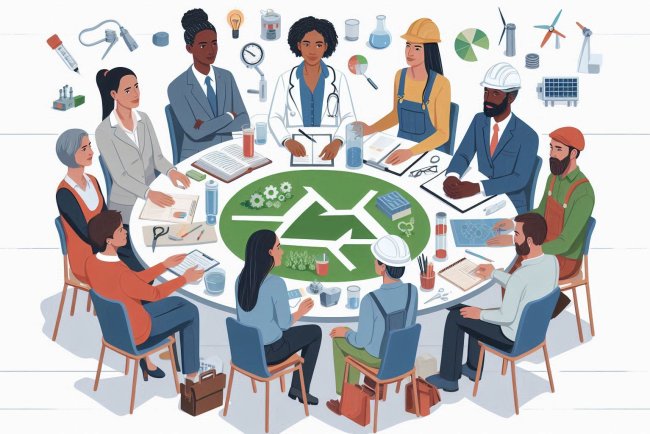The Role of Citizen Science in Renewable Energy Research
Discover how citizen science is transforming renewable energy research, empowering people to contribute to a sustainable future.

The Role of Citizen Science in Renewable Energy Research
Citizen science, also known as community science or public participation in scientific research, refers to the involvement of everyday individuals in scientific projects and research activities. In recent years, citizen science has emerged as a valuable tool in the field of renewable energy research. By engaging citizens in data collection, analysis, and problem-solving, researchers are able to gather large amounts of data and accelerate the development of renewable energy technologies. This article explores the various ways in which citizen science is making a significant impact on renewable energy research.
1. Data Collection and Monitoring
Citizen science projects in renewable energy often involve collecting and monitoring data related to energy production, consumption, and efficiency. For example, citizens can participate in rooftop solar panel monitoring programs, wind speed measurements, or energy usage audits in their homes. By contributing their data, citizens help researchers better understand the performance of renewable energy systems and identify areas for improvement.
2. Crowdsourcing Innovation
Another way in which citizen science contributes to renewable energy research is by crowdsourcing innovation. Citizens can propose new ideas, solutions, and technologies for improving renewable energy systems. This open innovation approach can lead to novel concepts and breakthroughs that may not have been possible through traditional research methods alone.
3. Public Engagement and Education
Citizen science also plays a crucial role in engaging the public and raising awareness about renewable energy. By involving citizens in research projects, researchers can educate them about the benefits of renewable energy, the challenges facing the energy sector, and the importance of sustainable practices. This increased awareness can lead to greater public support for renewable energy initiatives and policies.
4. Community Empowerment
Engaging citizens in renewable energy research empowers communities to take control of their energy future. By participating in research projects, citizens gain valuable knowledge and skills that can help them make informed decisions about energy consumption, conservation, and renewable energy adoption. This empowerment can lead to more sustainable energy practices at the community level.
5. Policy Advocacy
Citizen science can also influence renewable energy policy by providing policymakers with valuable data and insights. Citizens engaged in research projects can advocate for policies that support renewable energy development, such as incentives for solar or wind energy installations, energy efficiency programs, and carbon emissions reduction targets. By leveraging citizen science data, policymakers can make more informed decisions and implement effective renewable energy policies.
6. Collaboration and Networking
Collaboration and networking are key components of citizen science in renewable energy research. By working together, citizens, researchers, policymakers, and industry professionals can exchange ideas, share best practices, and collaborate on research projects. This collaborative approach fosters innovation, accelerates research progress, and creates a supportive community of renewable energy advocates.
7. Monitoring Environmental Impacts
Citizen science is also valuable in monitoring the environmental impacts of renewable energy projects. Citizens can help researchers track changes in biodiversity, air quality, water quality, and other environmental indicators near renewable energy installations. By collecting and analyzing this data, researchers can ensure that renewable energy projects are implemented in an environmentally responsible manner.
8. Data Analysis and Modeling
Citizen science contributes to renewable energy research by assisting with data analysis and modeling. Citizens can help researchers process and analyze large datasets, develop predictive models, and identify patterns and trends in energy consumption and production. By leveraging the collective expertise of citizens, researchers can gain valuable insights into renewable energy systems and optimize their performance.
Conclusion
Citizen science plays a critical role in advancing renewable energy research by engaging citizens in data collection, innovation, education, advocacy, collaboration, and environmental monitoring. By involving the public in scientific research projects, researchers can harness the collective knowledge and skills of citizens to accelerate the development of renewable energy technologies and promote sustainable energy practices. Through citizen science, we can work towards a cleaner, more sustainable energy future for all.
What's Your Reaction?

















